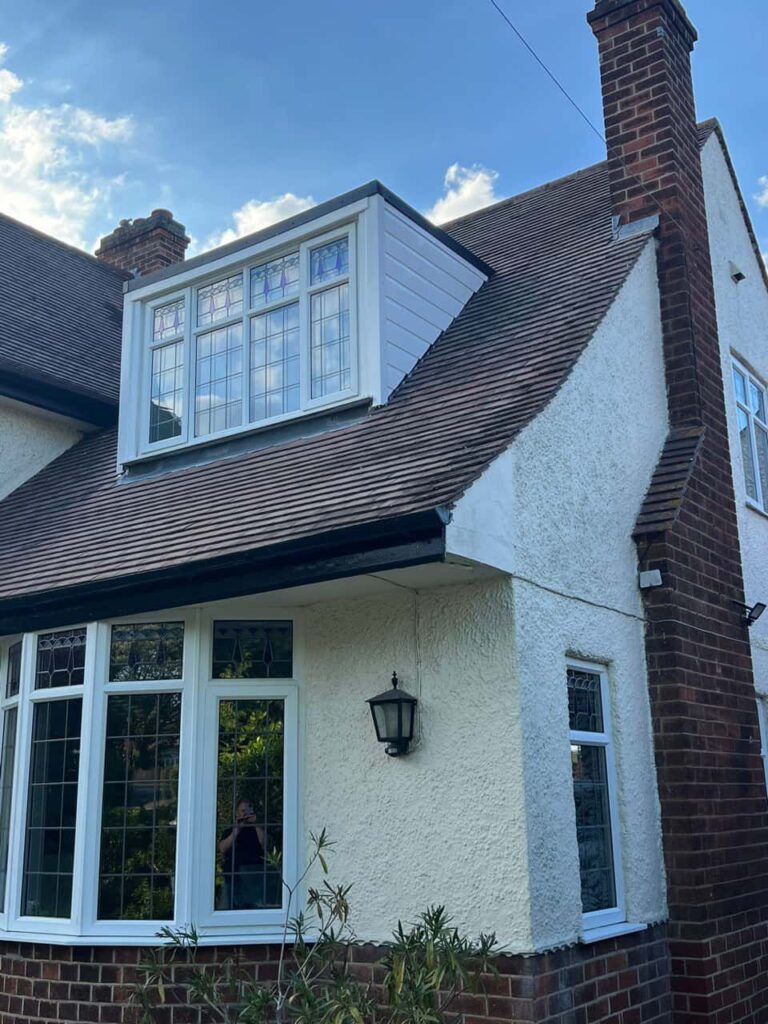Building a new home is an exciting endeavour, but it requires careful planning, especially when it comes to the roof. A roof is more than just a protective layer over your home—it plays a critical role in the building’s aesthetics, energy efficiency, and long-term durability. At MCM Roofing Repairs Thatcham, we have extensive experience in helping homeowners in Thatcham, West Berkshire, plan and execute the perfect roofing solutions for their new builds. In this guide, we’ll walk you through the essential considerations and steps for planning a roof that meets your needs and expectations.
1. Choosing the Right Roofing Style
One of the first decisions to make when planning a roof is selecting the right style. The design of your roof can significantly impact both the appearance and functionality of your new home.
- Gabled Roofs: Gabled roofs are a popular choice for their classic appearance and effective water runoff. They are suitable for homes in areas with heavy rainfall, making them ideal for the British climate.
- Hip Roofs: Hip roofs offer greater stability and are excellent for homes exposed to strong winds. They have a sleek design that adds a touch of elegance to modern builds.
- Flat Roofs: Flat roofs are increasingly popular for contemporary homes. They offer extra space for rooftop gardens or solar panels but require careful attention to drainage solutions.
The style you choose should complement the architectural design of your home while also meeting practical requirements, such as weather conditions in Thatcham, West Berkshire.
2. Selecting the Best Roofing Materials
The choice of roofing material is another crucial aspect of planning your roof. Each material has its own advantages, and the right option depends on your budget, desired aesthetics, and the local climate.
- Slate: Slate is known for its longevity and classic look. It’s an excellent choice for high-end builds, offering a traditional appearance that can last for decades with proper care.
- Clay or Concrete Tiles: These materials are durable and come in various colours, making them suitable for different architectural styles. They are resistant to weathering and provide a timeless look.
- Asphalt Shingles: A more cost-effective option, asphalt shingles are versatile and easy to install. They are available in numerous styles and colours, allowing homeowners to achieve their desired aesthetic without exceeding their budget.
- Metal Roofing: Metal roofs are lightweight, durable, and energy-efficient. They are ideal for homes that prioritise sustainability, as they can reflect heat and reduce cooling costs.
Selecting the right material involves balancing aesthetics, durability, and cost. A professional consultation can help you choose the best option for your new build.
3. Planning for Insulation and Ventilation
A well-designed roof is not just about the materials and style; insulation and ventilation are equally important. Proper insulation and ventilation help regulate indoor temperatures and prevent issues like moisture build-up.
- Insulation: Effective roof insulation can significantly improve your home’s energy efficiency by preventing heat loss in winter and keeping your home cooler in summer. This can lead to lower energy bills and a more comfortable living environment.
- Ventilation: Roof ventilation helps to prevent moisture build-up, which can lead to mould growth and structural damage. A well-ventilated roof extends the lifespan of roofing materials and helps maintain a healthy living space.
During the planning phase, it’s essential to consider how insulation and ventilation will be incorporated into the design. This ensures that your home remains comfortable year-round and reduces the risk of future maintenance issues.
4. Working with a Trusted Roofing Contractor
Building a new roof is a significant investment, so it’s essential to work with a reputable roofing contractor who understands the intricacies of new builds.
- Experience with New Builds: Choose a contractor who has a proven track record of working on new construction projects. They will be familiar with the specific requirements and challenges that come with building a roof from scratch.
- Detailed Project Planning: A good contractor will provide a clear plan, including timelines, costs, and materials. This transparency helps you stay informed throughout the process and ensures that there are no surprises.
- Quality Assurance: Make sure that the contractor uses high-quality materials and offers warranties on their work. This will give you peace of mind, knowing that your investment is protected.
At MCM Roofing Repairs Thatcham, we pride ourselves on delivering reliable, professional roofing services for new builds, ensuring that every project meets our high standards of quality.
5. Understanding Building Regulations and Planning Permissions
Before starting any roofing project, it’s essential to understand the relevant building regulations and planning permissions in Thatcham, West Berkshire.
- Compliance with Building Regulations: Roofing projects must comply with local building regulations to ensure the safety and energy efficiency of the home. This includes aspects such as structural stability, insulation standards, and fire safety.
- Planning Permission: In some cases, especially for certain roof styles or materials, you may need to obtain planning permission before starting construction. This is particularly important for properties in conservation areas or listed buildings.
A professional roofing contractor can help guide you through these requirements, ensuring that your project complies with all regulations and avoids delays.
6. Considering Future Maintenance Needs
When planning a roof for a new build, it’s also important to consider the long-term maintenance needs of the chosen materials and design.
- Regular Inspections: Scheduling regular roof inspections can help catch potential issues early, such as loose tiles or minor leaks. This can extend the lifespan of your roof and save you money on repairs in the long run.
- Cleaning and Maintenance: Certain roofing materials, such as tiles or metal, may require periodic cleaning to maintain their appearance and functionality. Understanding the maintenance needs of your chosen material can help you plan accordingly.
Investing in quality materials and professional installation will minimise maintenance requirements, making it easier to keep your new roof in excellent condition.
Conclusion
Planning a roof for a new home build is a complex process that requires careful consideration of style, materials, insulation, and local regulations. By working with a trusted contractor like MCM Roofing Repairs Thatcham, you can ensure that your new roof meets your needs and stands the test of time. Our expertise in providing tailored roofing solutions means that your home will be equipped with a durable, aesthetically pleasing, and energy-efficient roof.
Call us on: 01635 889 395
Click here to find out more about MCM Roofing Repairs Thatcham
Click here to complete our contact form and see how we can help with your roofing needs.

